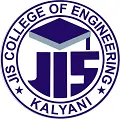Why Choose M.Sc. in Remote Sensing & GIS?
- High Demand for GIS Experts: Industries and governments rely on geospatial technologies for planning and decision-making.
- Advanced Technology & Research Scope: Opportunities in AI-driven spatial analytics and satellite monitoring.
- Diverse Career Options: Work in urban planning, climate studies, disaster management, and space research.
- Global Opportunities: GIS and remote sensing professionals are in demand worldwide.
Curriculum:
The M.Sc. in Remote Sensing & GIS program provides expertise in spatial data analysis and satellite-based monitoring, covering:
- Fundamentals of GIS and Remote Sensing
- Digital Image Processing and Analysis
- GPS Technology and Applications
- Spatial Database Management
- Environmental and Urban Planning using GIS
- Climate Change and Natural Resource Management
- Machine Learning & AI in Geospatial Studies
Internship/Practical Training:
- Hands-on training with GIS software (ArcGIS, QGIS, ERDAS, ENVI, Google Earth Engine)
- Industry projects in urban planning, disaster management, and environmental monitoring
- Collaboration with government agencies, research organizations, and private GIS firms
Job Prospects:
Graduates can find employment in government departments, space research organizations, IT firms, environmental agencies, and geospatial consultancies.
Top recruiters include:
- ISRO, NRSC, DRDO, Indian Meteorological Department, NHAI, ESRI India, RMSI, Google, IBM, Tata Consultancy Services (TCS), Infosys, and environmental NGOs
Salary Range:
- Entry-level: INR 5 lakh to 8 lakh per annum
- Mid-level/Senior roles: INR 10 lakh to 20 lakh per annum
Further Studies:
After completing an M.Sc. in Remote Sensing & GIS, students can pursue:
- Ph.D. in Geoinformatics, Remote Sensing, or Environmental Science
- Certifications in GIS & Remote Sensing tools (ArcGIS, ERDAS Imagine, ENVI, Google Earth Engine)












